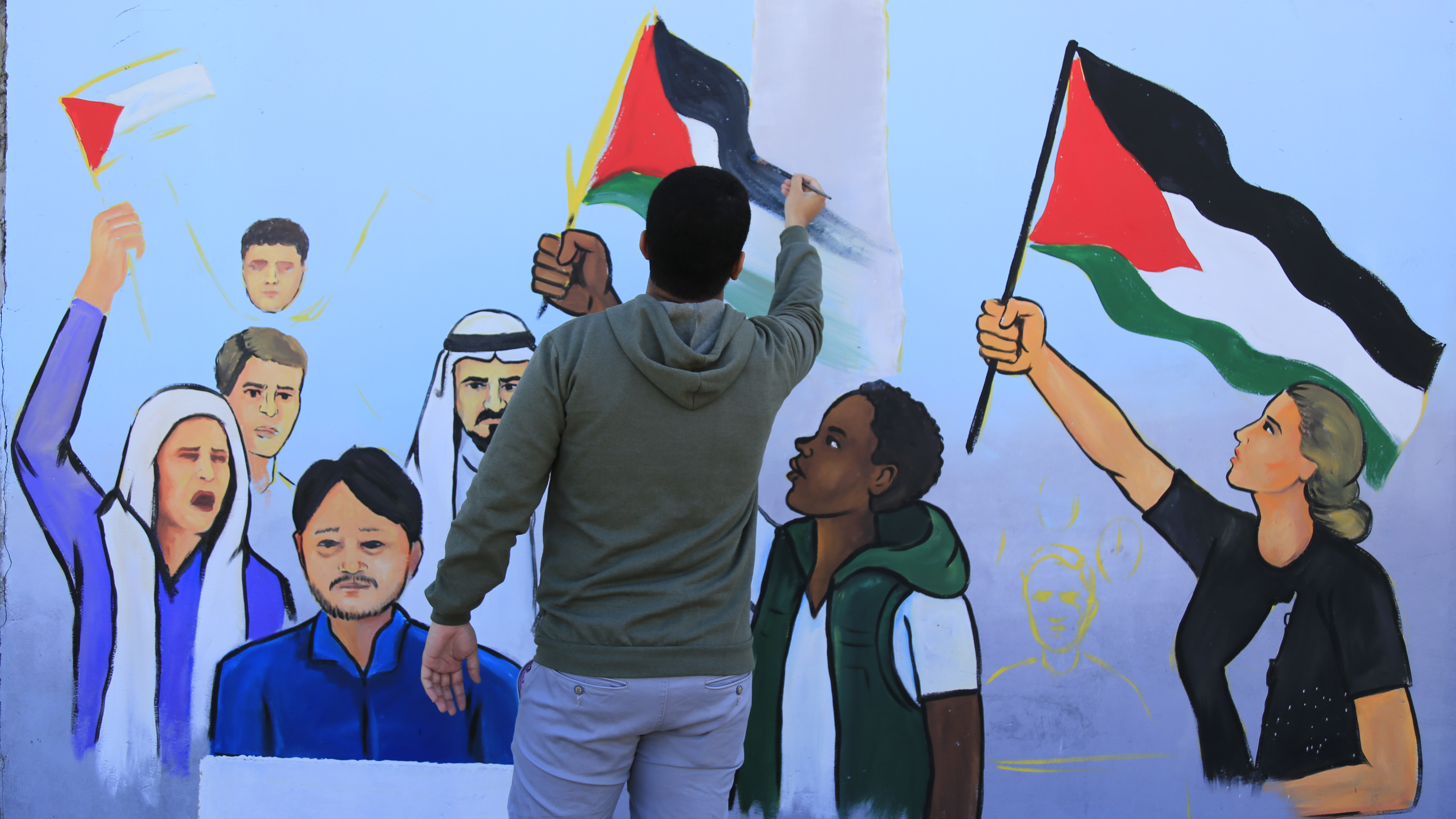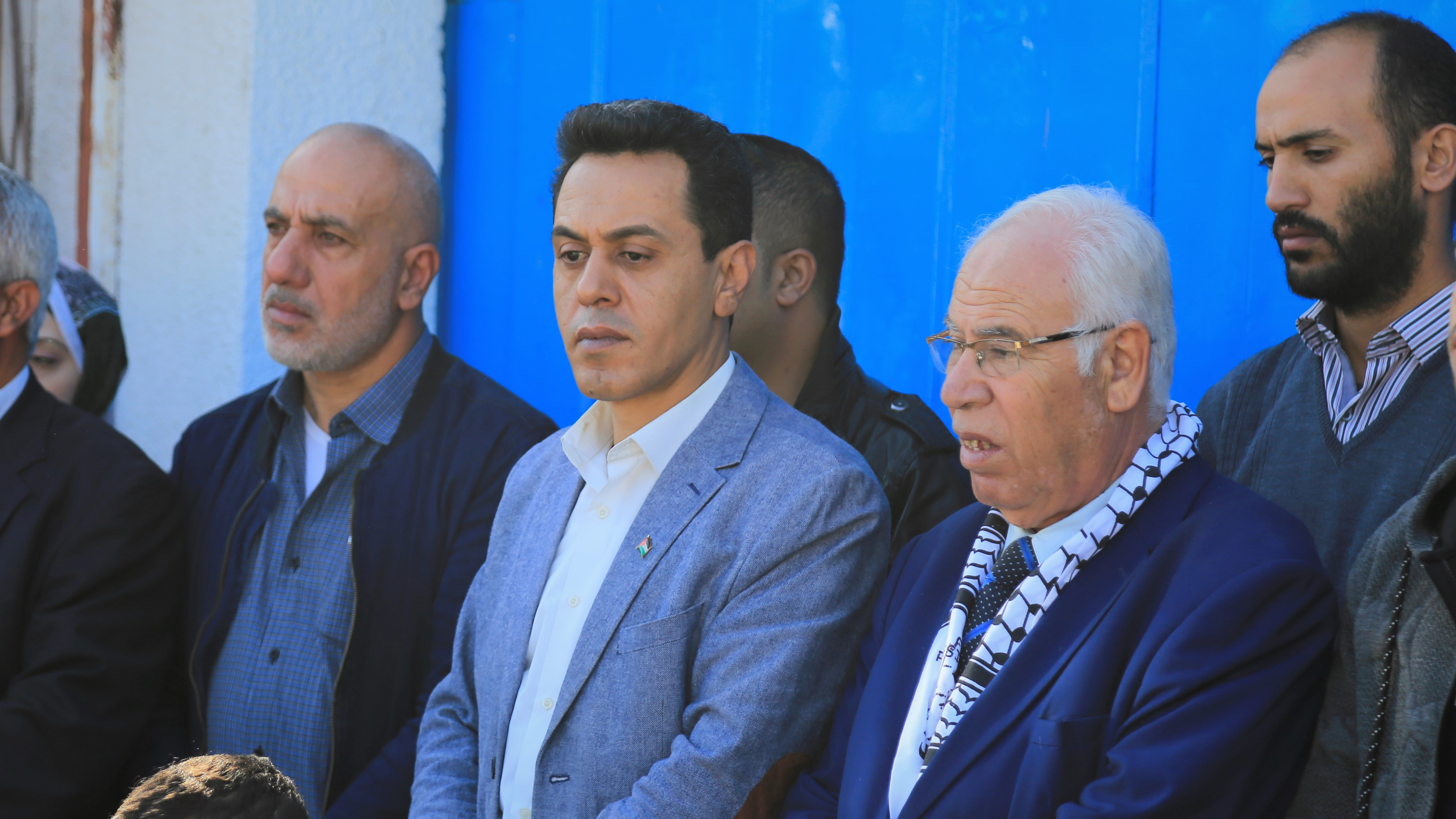
A Palestinian artist painting a mural on the occasion of the International Day of Solidarity with the Palestinian People in Gaza City, November 28, 2019. /CGTN Photo
A Palestinian artist painting a mural on the occasion of the International Day of Solidarity with the Palestinian People in Gaza City, November 28, 2019. /CGTN Photo
On November 29, 1977, the United Nations General Assembly called for the observance of the International Day of Solidarity with the Palestinian People. On that day in 1947, the General Assembly adopted the resolution of partition of Palestine (Resolution 181). The resolution recommended the creation of independent Arab and Jewish States and a Special International Regime for the city of Jerusalem. This was the first attempt by the United Nations to resolve the Palestinian issue.
On this day every year, the United Nations holds a special meeting at the UN headquarters in New York and organizes an exhibition on the rights of Palestinians. In 2015, the Palestinian flag was raised in front of UN headquarters and offices around the world, and a ceremony was held to raise the flag of the State of Palestine at the UN headquarters in New York on September 30, 2015.
Despite the fact that more than 70 years have passed since the Palestinian-Israeli conflict, the Palestinian issue remains "the most national issue with a global dimension," as it has gone through many stations that led to the signing of the Oslo Peace Accords in 1993, and the beginning of negotiations between the Palestinian and Israeli sides which came to a halt in April 2014 and the stalled peace process with the Palestinians accusing Israel of swaying on their land and building more settlements, in addition to expanding many of them, undermining any chances of agreeing on any solutions to the conflict.
"The vast majority of the Palestinian people support UN Resolution 181 to divide, support a two-state solution and hope for a Palestinian state alongside the State of Israel and Jerusalem as its capital, but Israel's settlement, Judaization and measures no longer leave a two-state solution with any chance," Abu Sida, head of the political science department at Al-Azhar University, told CGTN.
At a time the UN and Security Council resolutions call on Israel to evacuate existing settlements in territories classified as a future Palestinian state in order to implement a two-state solution, the U.S. recently recognized Israeli settlements in the West Bank as part of Israel in contrary to international consensus and UN resolutions. Therefore, the Palestinian Authority considers this as a blatant American bias with which it cannot continue to play the role of mediator between the two parties.

Lawyer Salah Abdul Atti (C) outside UN headquarters in Gaza on the International Day of Solidarity with the Palestinian People, November 28, 2019. /CGTN Photo
Lawyer Salah Abdul Atti (C) outside UN headquarters in Gaza on the International Day of Solidarity with the Palestinian People, November 28, 2019. /CGTN Photo
On the Palestinian side, the internal division that began in 2006 has continued until now, creating a major rift between the Palestinian Authority, which administers the West Bank, and Hamas, which has taken control of the Gaza Strip and runs its affairs individually.
"Internal division undermined the democratic choice of the Palestinian people, and led to a situation of monopoly in the Palestinian political system, which hindered the ability of the Palestinians to face the great national challenges encountering them," Salah Abdul Atti, lawyer of the Independent Commission for Human Rights, told CGTN.
In light of the many years of Palestinians being under occupation and their continued suffering, the greatest constant in this regard is the human and material loss that the Palestinian people have suffered. The weekly protests on the Gaza border continue to lead to the ceaseless tension between the two sides, leading to more injuries, deaths and destructions.